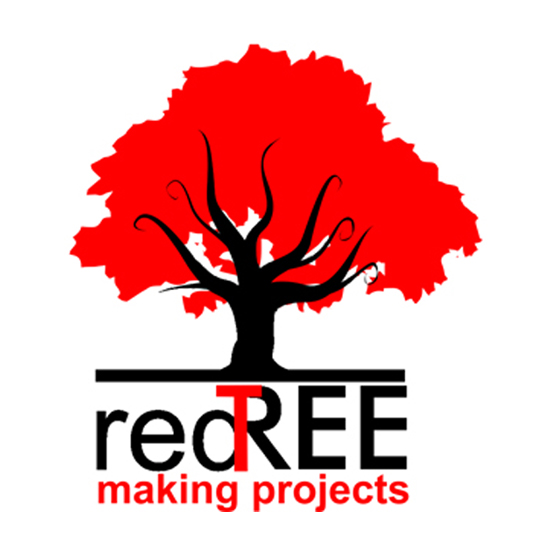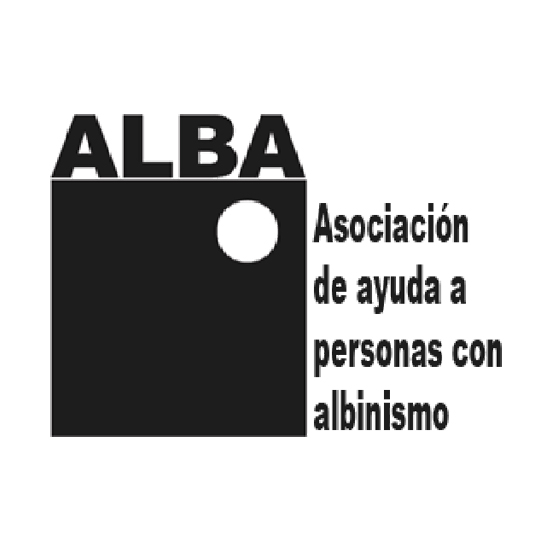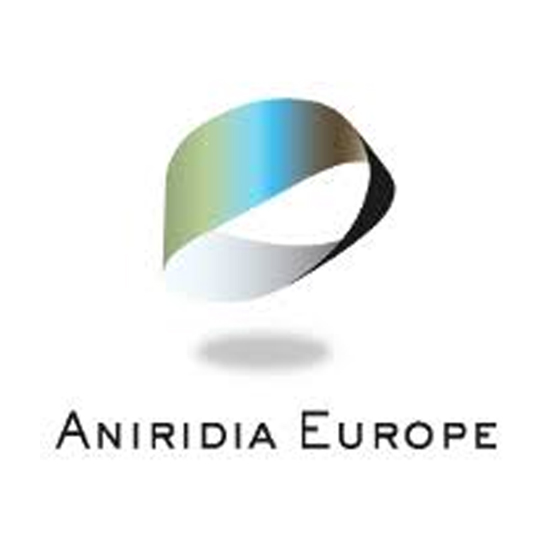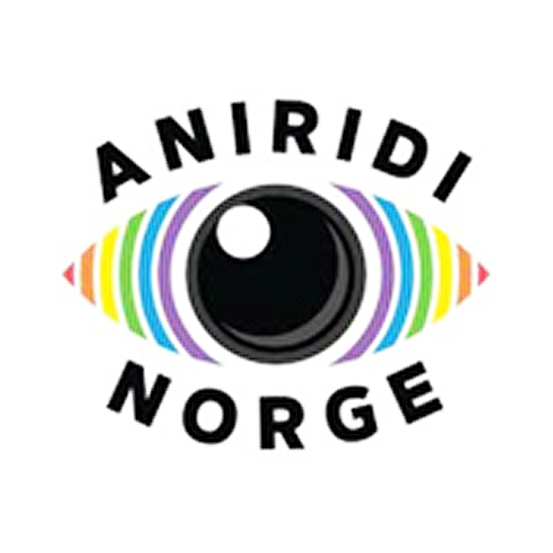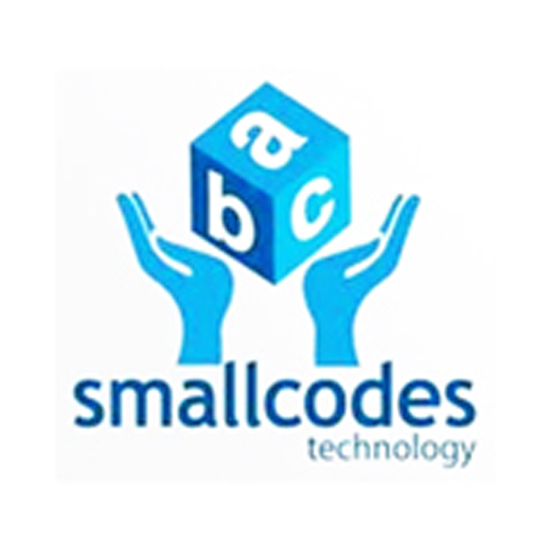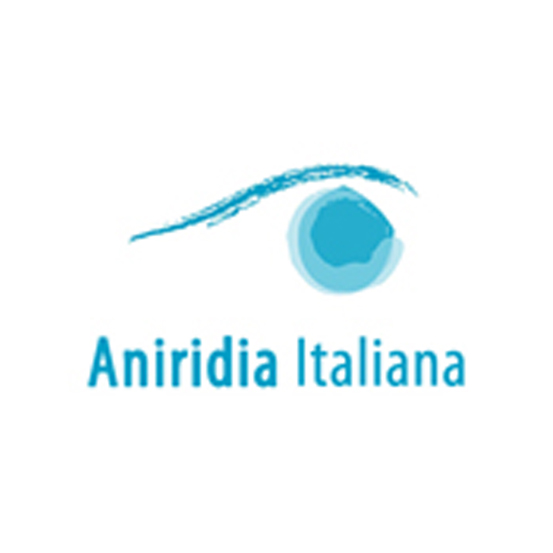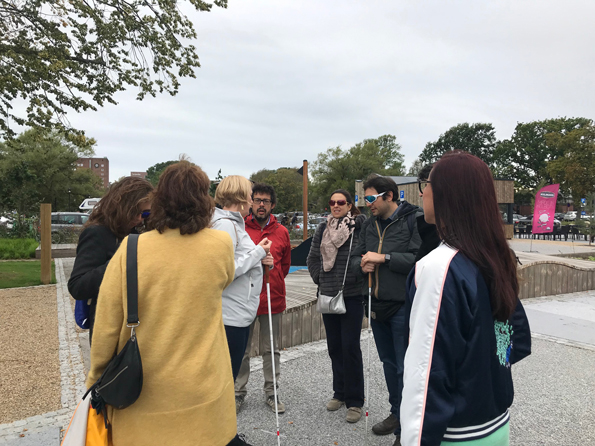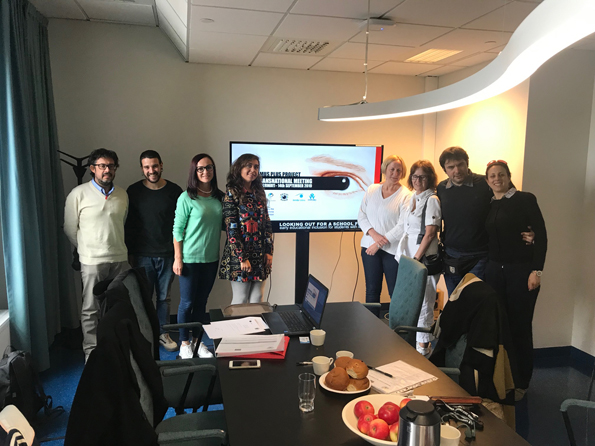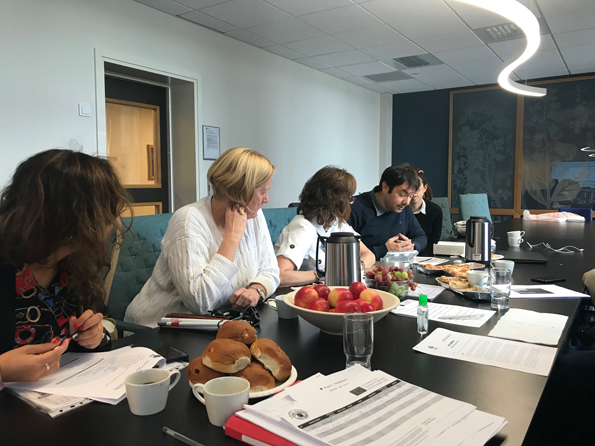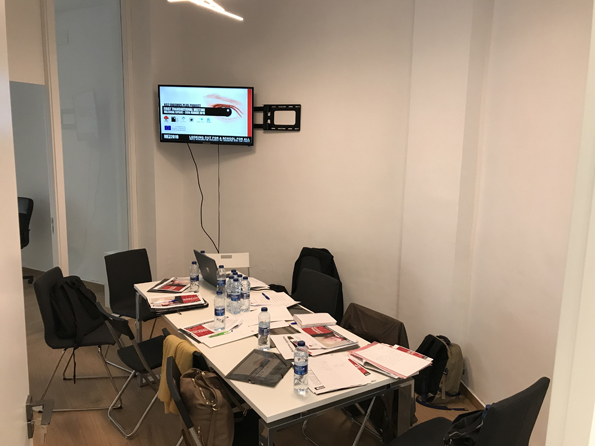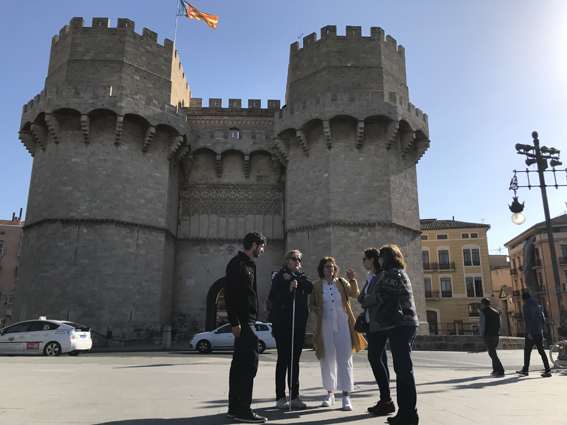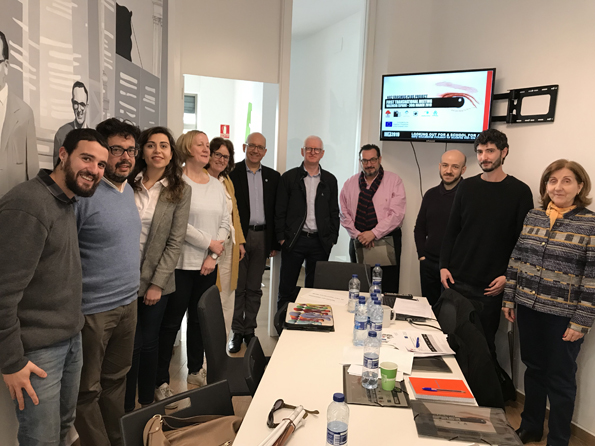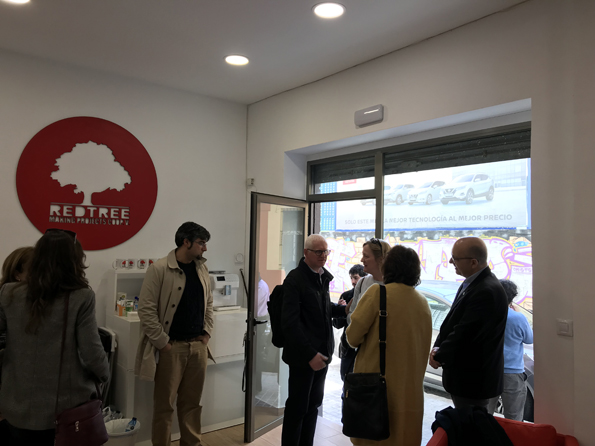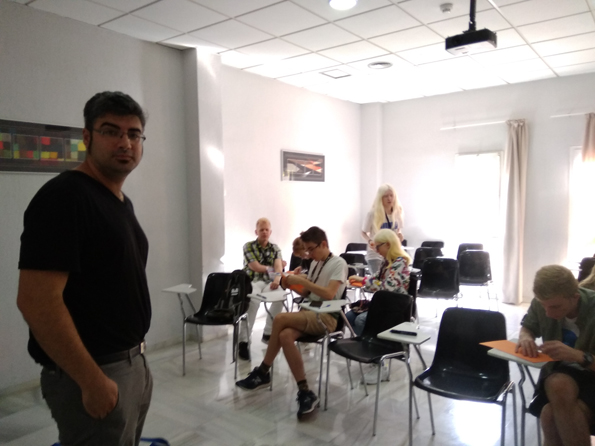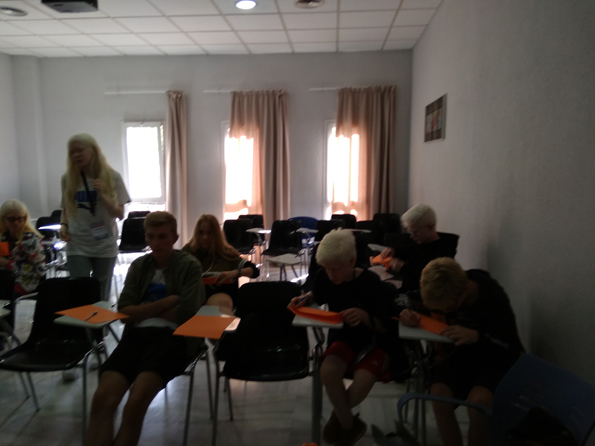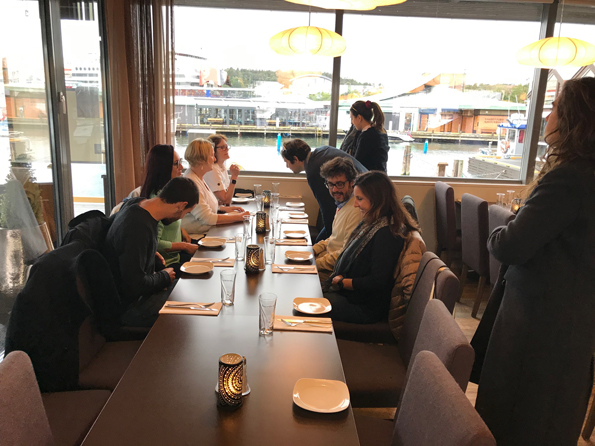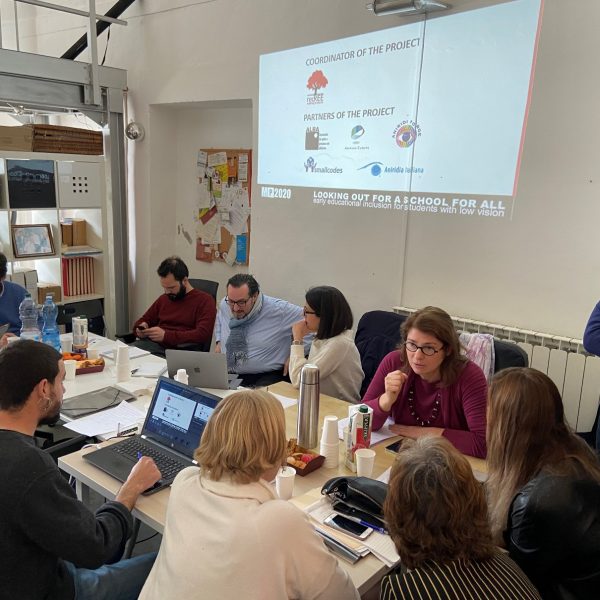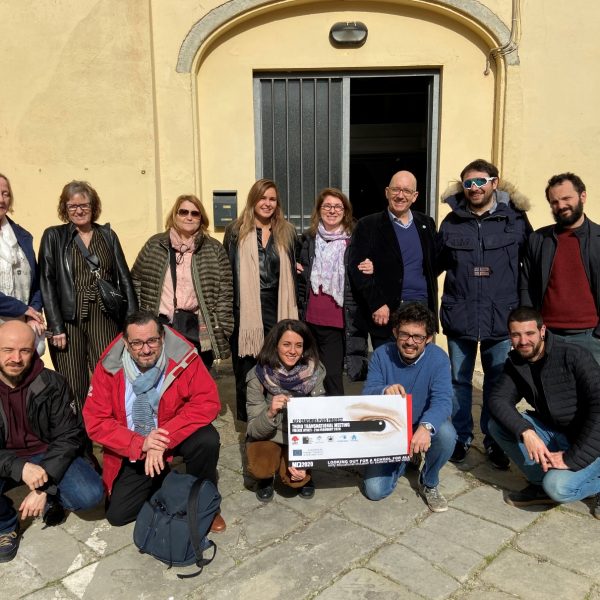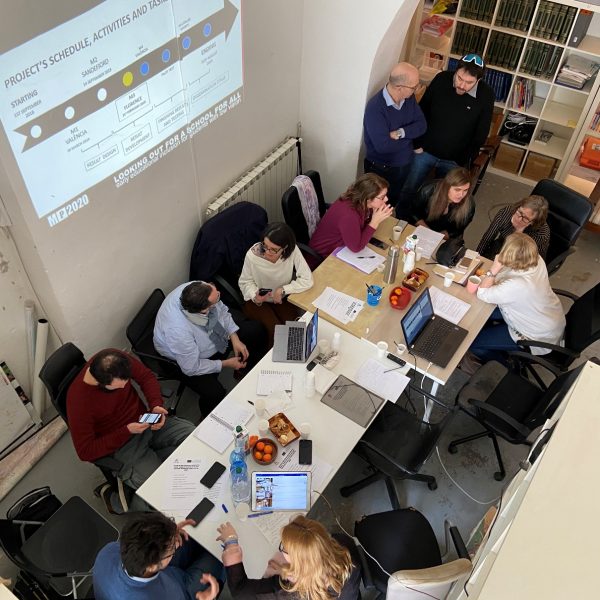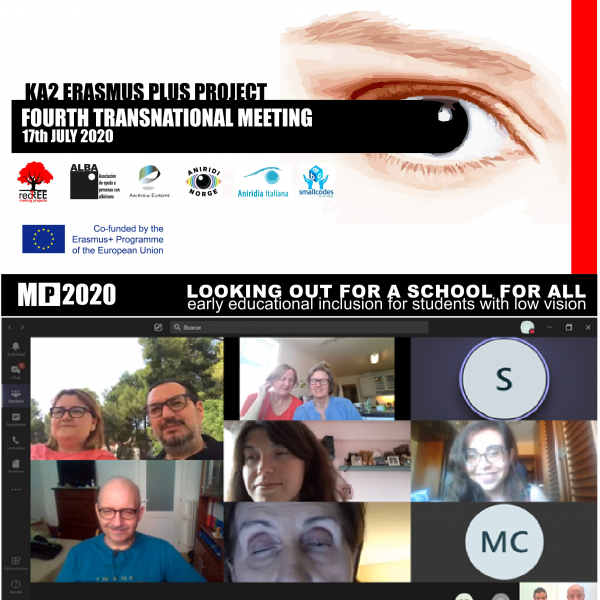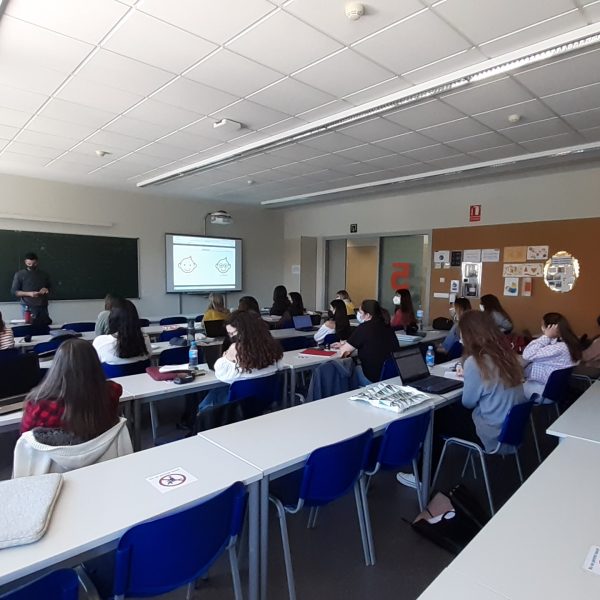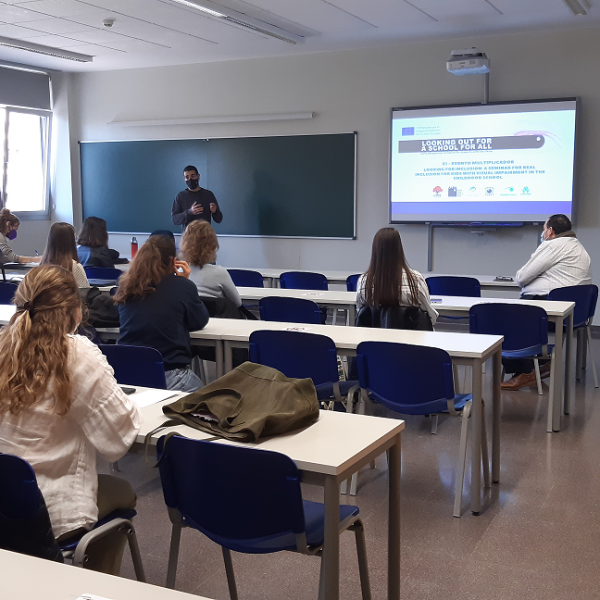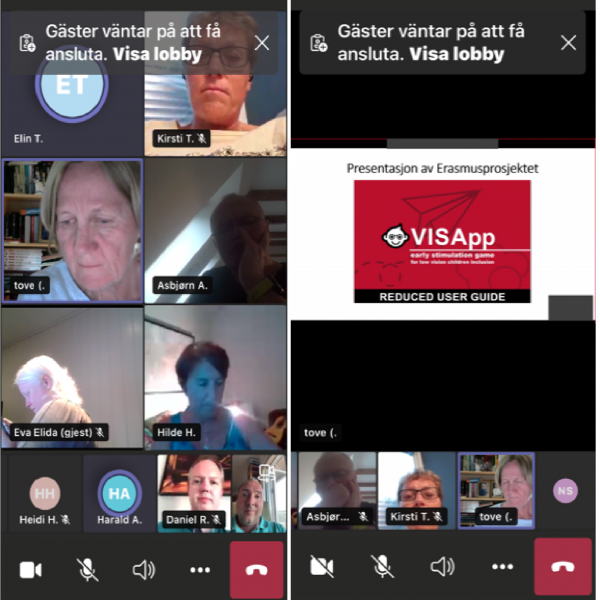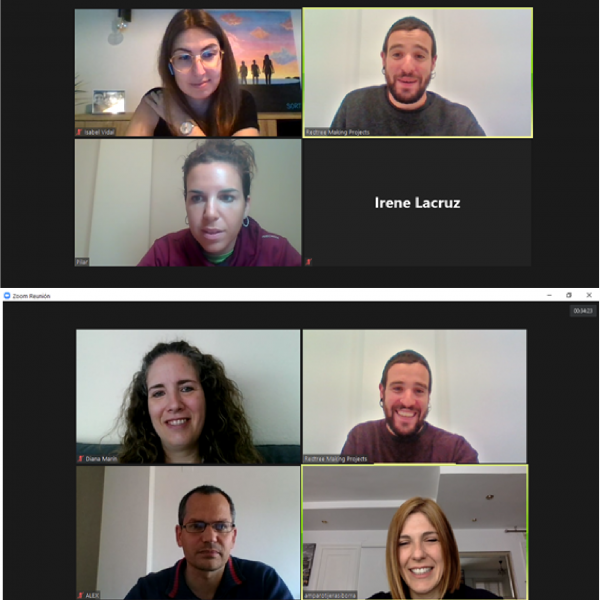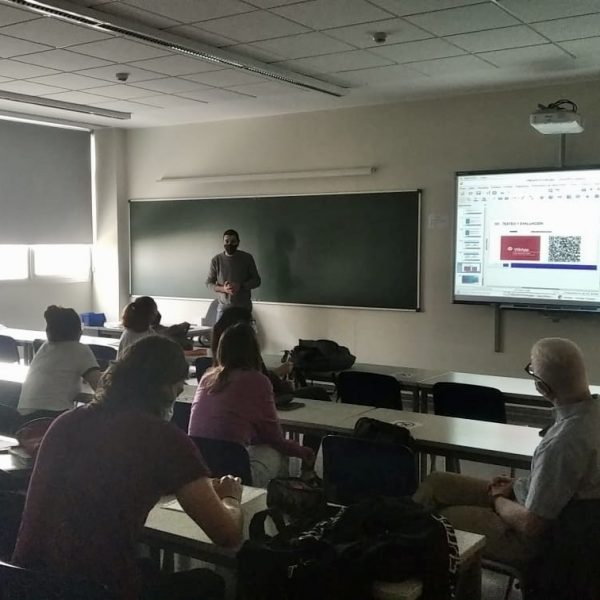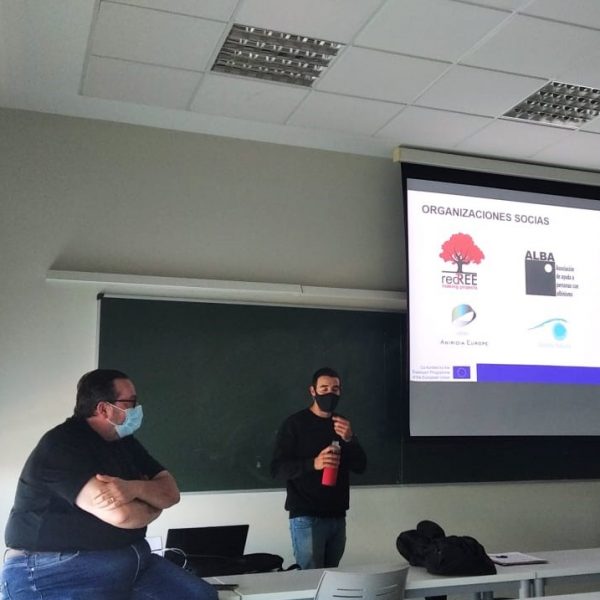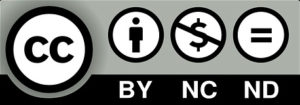LOOKING OUT FOR A SCHOOL FOR ALLThis early attention has been historically conceived from a segregation perspective where blind people were 'educated in their world for their own world'; nowadays, however, the social inclusion of children with visual impairment is a priority. This is the main principle that sustains and gives life to the project Looking for a school for everyone: educational inclusion at early ages for students with reduced vision.
This initiative, a crosscutting partnership of entities from Spain, Norway and Italy promotes an equal inclusion of children with mild to severe visual impairments in standard early education and nursery schools, not only to enhance the children's psychological, motor and pedagogical training, but also to promote their future inclusion and social and occupational integration abilities. This make them able to participate and interact in normal ways with people without visual impairments, and also to compete at their level in productivity and efficiency.
The project has a great impact on early childhood education, especially on students with mild to severe visual deficiencies, as well as on the training of teachers at this level. It should be noted that the European Commission and the EU Member States, through EU's 'ET 2020 Thematic Working Group on Early Childhood Education and Care (2012-2014) have acknowledged that access to inclusive and high quality EAPI (Educacion y Atencion a la Primera Infancia) services is beneficial for everyone. EAPI are essential to an efficient education system: investing as early as possible in a high quality education for everyone avoids higher costs in later stages of education, where the differential costs to close the gaps between high and low performance students are higher. Many studies have shown the long-term positive effect of EAPI policies in the context of universal or large-scale provision financed with public funds; these benefits include a wide range of individual and social gain so the impact of this project can be highly significant and sustained over time.
PREPARATION PHASE
The preparation phase is an essential step in this kind of projects, especially when the project is carried out by a new partnership. A good preparation phase allowed us to avoid serious communication problems in the other phases of the project.
IMPLEMENTATION PHASE
The implementation phase encompassed a large and diverse number of activities aimed at creating all the project’s results, such as the Intellectual Outputs and the tangible or structural results.
DISSEMINATION PHASE
The dissemination and visibility phase allowed the partners to spread knowledge about the project, but also to promote the use of its results through activities aimed at the most appropriate multiplier, so that the materials achieved a great impact on beneficiaries.
EVALUATION PHASE
The evaluation phase was transversal throughout the project and allowed us to monitor everything to avoid issues with the quality of the results, the adjustment to the budget, and the fulfillment of the schedule.
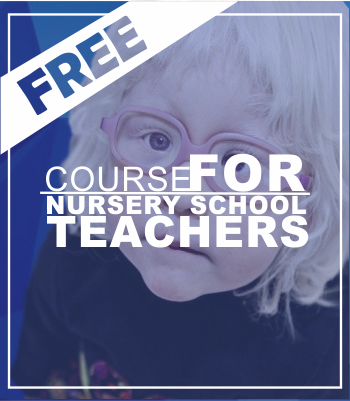
VIRTUAL TRAINING COURSE
We offer a virtual course, easily accessible through an e-learning platform, to train pre-primary education teachers from existing centers so they can transform their classrooms into inclusive ones, for children between 1 to 6 years old with mild to severe visual impairment. This course is based on the conviction that Integrated Education offers more possibilities towards children’s psychosocial development than a segregated one. The goal of this type of education is the inclusion of students with visual impairment, so they…
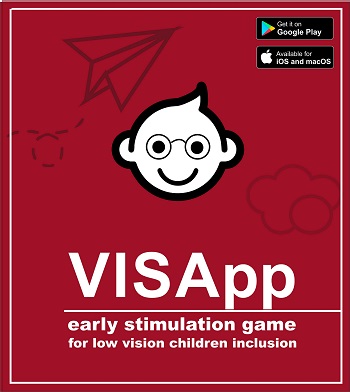
ICT TOOL FOR THE EDUCATIONAL INCLUSION OF LOW VISION STUDENTS
EDUCATIONAL GAME: ICT TOOL FOR THE EDUCATIONAL INCLUSION OF LOW VISION STUDENTS Discover an innovative tool focused on promoting the effective inclusion of children with visual impairment in standard classrooms for the pre-primary stage. Created within the Erasmus+ SCHOOL FOR ALL project, VISAPP provides solutions for teachers to promote the visual and cognitive stimulation of children with visual impairment from 0 to 6 years old. This tool is conceived as a mechanism of inclusion in equity, so it is not…
Promoting the educational and social inclusion of children with visual impairment
We promote the educational and social inclusion of children with mild to severe visual impairment, understanding it as a bio-psychosocial training process whose purpose is the full integration of children with SEN in ordinary pre-primary schools and nurseries (not specialized for children with disabilities). A lot of pre-primary schools in all countries involved have not only shown interest in the results of the project, but also in implementing it in their centers.
Generating open and innovative practices
Generating open and innovative practices in this digital age to facilitate integration in the classroom, thus reinforcing teaching, including the profiles of teachers, principals, and educators by giving them tools for an equitable inclusion of students with mild to severe visual impairment in the classroom environment. Thanks to the contributions of experts and collaborating organizations, the online course and its linked materials have achieved a high quality, with clear, didactic, and technical content combining science, didactics, and amenity.
Improving the access to a high quality inclusive school
Supporting the efforts to improve the access to a high quality inclusive school that promotes the training of students with mild to severe visual impairment along with the rest of the students. The Educational Software (O2) is an easily downloadable interactive application, accessible for free, and especially designed to be used by teachers in the classroom and families at home, which is why it was developed to be compatible with a large number of devices.
Raising awareness among schools and society in general
We raised awareness among schools and society in general about their responsibilities and commitment to the process of social integration of their members with disabilities. The project was very well received, and many organizations and individuals have taken an interest in it as a result of the visibility and dissemination activities carried out in the three partner countries.
